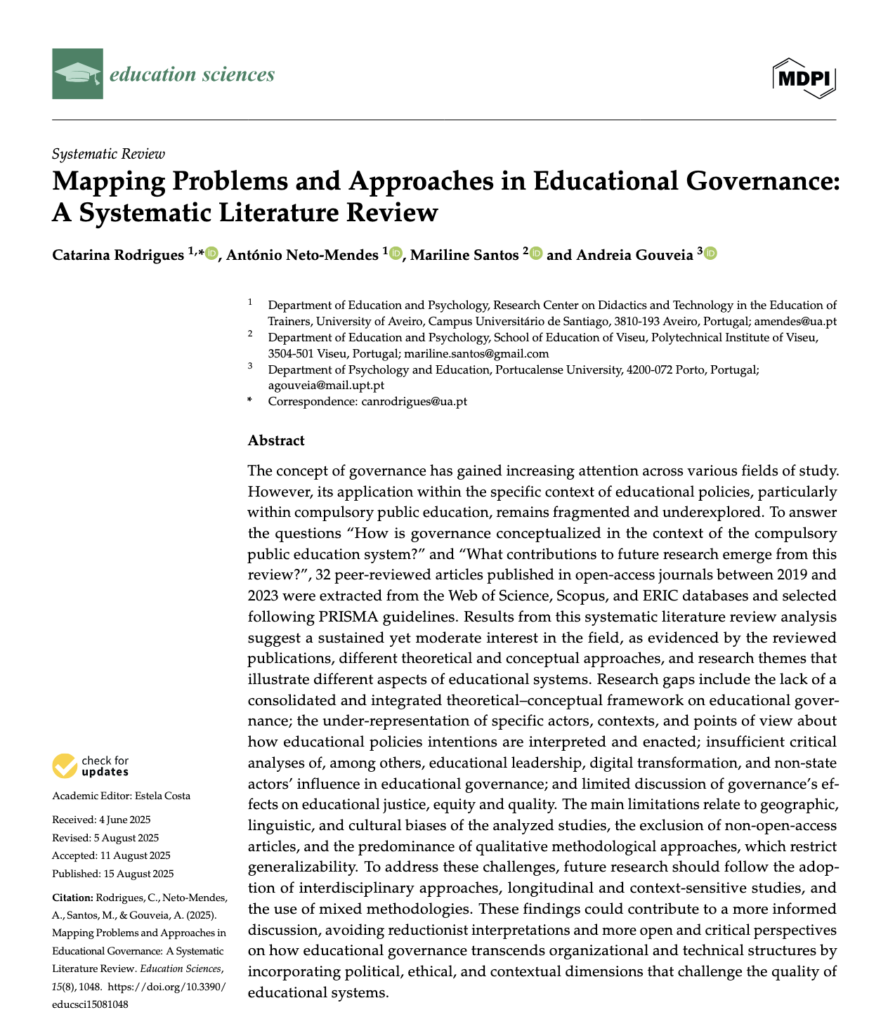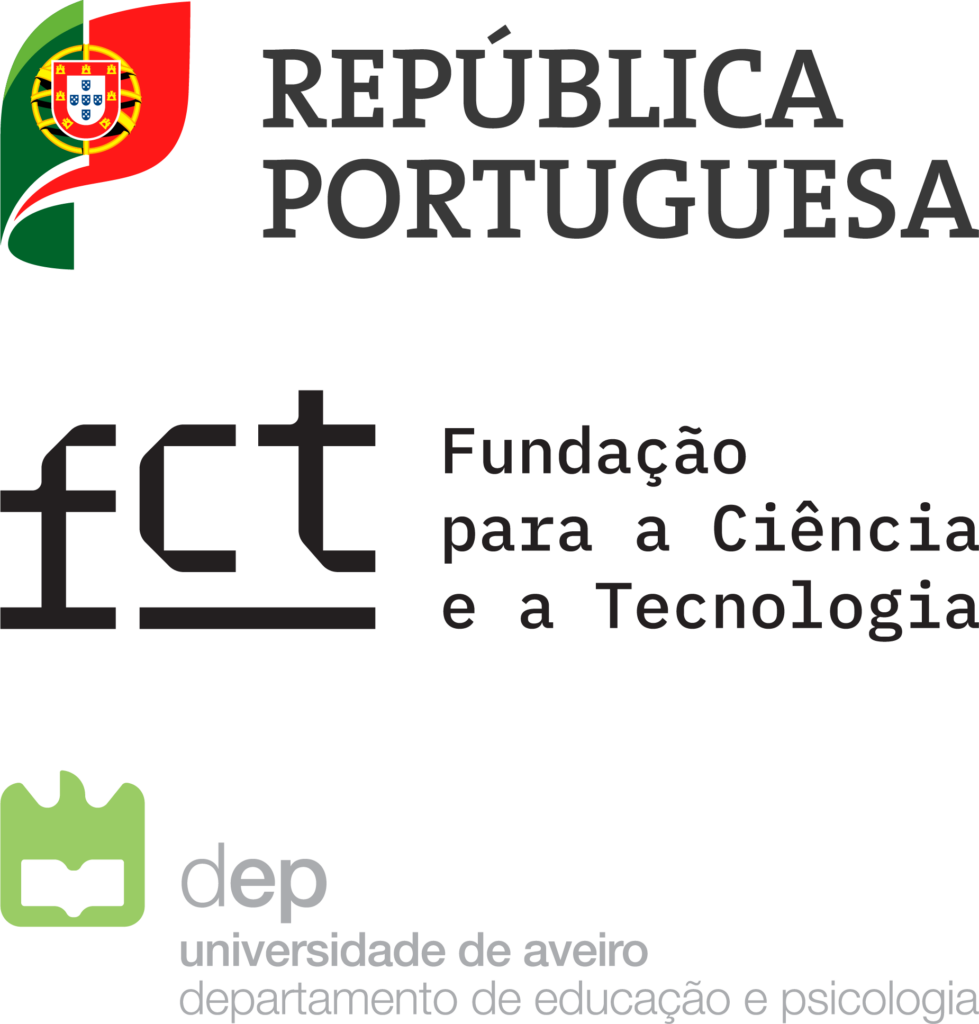Catarina Rodrigues (CIDTFF), António Neto-Mendes (CIDTFF), Mariline Santos (CIDTFF) & Andreia Gouveia | Education Sciences, 15(8), 1048
Abstract:
The concept of governance has gained increasing attention across various fields of study. However, its application within the specific context of educational policies, particularly within compulsory public education, remains fragmented and underexplored. To answer the questions “How is governance conceptualized in the context of the compulsory public education system?” and “What contributions to future research emerge from this review?”, 32 peer-reviewed articles published in open-access journals between 2019 and 2023 were extracted from the Web of Science, Scopus, and ERIC databases and selected following PRISMA guidelines. Results from this systematic literature review analysis suggest a sustained yet moderate interest in the field, as evidenced by the reviewed publications, different theoretical and conceptual approaches, and research themes that illustrate different aspects of educational systems. Research gaps include the lack of a consolidated and integrated theoretical–conceptual framework on educational governance; the under-representation of specific actors, contexts, and points of view about how educational policies intentions are interpreted and enacted; insufficient critical analyses of, among others, educational leadership, digital transformation, and non-state actors’ influence in educational governance; and limited discussion of governance’s effects on educational justice, equity and quality. The main limitations relate to geographic, linguistic, and cultural biases of the analyzed studies, the exclusion of non-open-access articles, and the predominance of qualitative methodological approaches, which restrict generalizability. To address these challenges, future research should follow the adoption of interdisciplinary approaches, longitudinal and context-sensitive studies, and the use of mixed methodologies. These findings could contribute to a more informed discussion, avoiding reductionist interpretations and more open and critical perspectives on how educational governance transcends organizational and technical structures by incorporating political, ethical, and contextual dimensions that challenge the quality of educational systems.
Keywords: governance; public education; educational policies; educational leadership; systematic literature review.
– – – – –
Referência:
Rodrigues, C., Neto-Mendes, A., Santos, M., & Gouveia, A. (2025). Education Sciences, 15(8), 1048. https://doi.org/10.3390/educsci15081048





